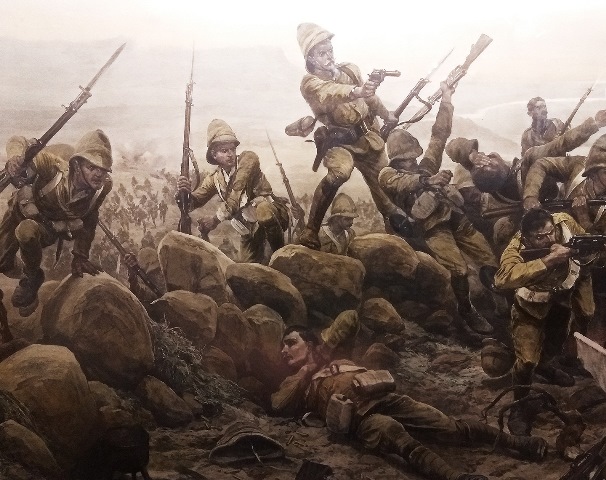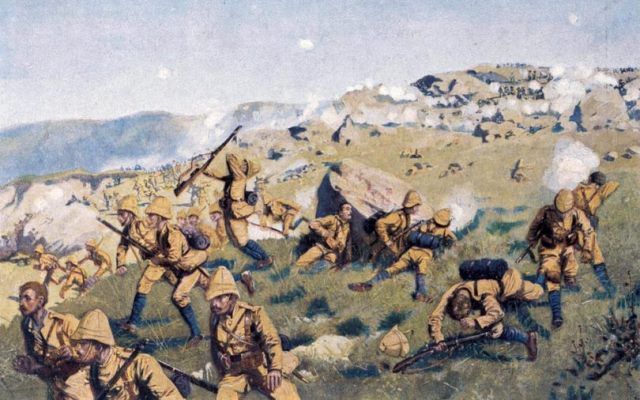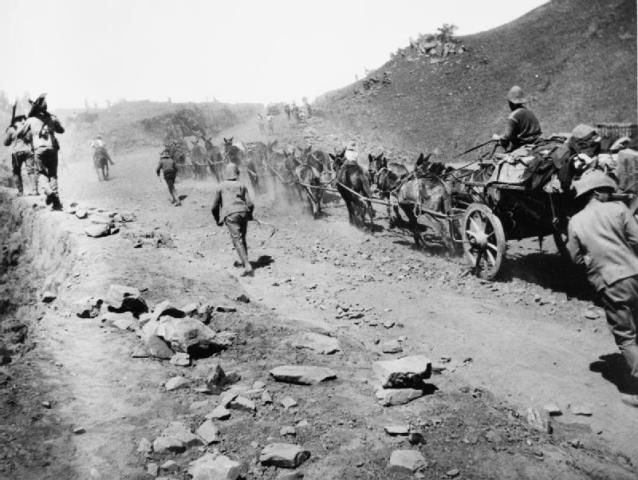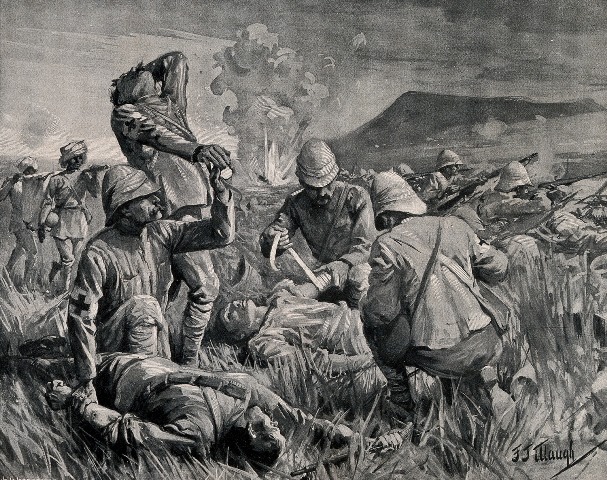The Boer Wars, which took place in South Africa between the British Empire and the descendants of Dutch settlers known as the Boers, was a watershed moment in colonial resistance history.
These conflicts were watershed moments in the struggle for independence and resistance to colonial dominance.
The Boer Wars were a testament to a people’s bravery and determination in fighting for their freedom against a powerful empire.
They were fought between armies and cultures, ideologies, and ways of life. They were a battle between colonial might and the tenacity of a people determined to keep their independence. The Boer Wars also revealed the complex and often brutal realities of colonialism and the long-term impact it had on the oppressed people.
To this day, the Boer Wars continue to shape South African identity and politics and serve as a powerful reminder of the sacrifices made in the name of freedom.

Who Are The Boers?
The Boers are descendants of Dutch settlers who settled in the Cape Colony (modern-day South Africa) in the seventeenth and eighteenth centuries. They built farms and later moved to the country’s interior.
Here, they founded two independent republics, the Orange Free State and the South African Republic (Transvaal).
The Afrikaners, or Boers, have a distinct cultural, linguistic, and historical identity that distinguishes them from other South African communities. They played an important role in South African history, and their resistance to British colonial rule was a watershed moment in the struggle for independence and resistance to colonialism.
First Boer War (1880-1881)
Innovative Tech Solutions, Tailored for You
Our leading tech firm crafts custom software, web & mobile apps, designed with your unique needs in mind. Elevate your business with cutting-edge solutions no one else can offer.
Start NowThe First Boer War, or the Transvaal War, was fought in South Africa between the British Empire and the Boers, descendants of Dutch settlers. The war lasted from 1880 to 1881 and marked the beginning of South African resistance to British colonial rule.
It was triggered by a dispute over the independence of the South African Republic (Transvaal) and the recognition of its borders. The Boers, who had established the Transvaal as an independent state, felt threatened by the growing presence of British settlers in the region.
This led to tensions between the two groups reaching a boiling point in 1880 when the Boers rejected a British ultimatum and declared war.
The war was fought primarily in the Transvaal. And the Boers gained the upper hand thanks to their knowledge of the terrain and experience as frontier fighters.
Despite being outnumbered, they defeated the British in several key battles, including the Battle of Laing’s Nek. The British were forced to withdraw, and peace talks were held in Pretoria in 1881.

The Impact of the First Boer War
The First Boer War resulted in the recognition of the Transvaal’s independence. The region was granted a new constitution that protected the rights of both Boers and British settlers.
In addition, the war marked a turning point in the relationship between the British Empire and the Boers, who saw it as a vindication of their independence struggle.
The War had far-reaching impacts on South Africa and the rest of the world. It was also a key moment in the resistance to colonial rule. And it served as a powerful reminder of a people’s bravery and determination in their fight for freedom. At the same time, it revealed the realities of colonialism and the long-term impact it had on the oppressed people.
Read: 7 Female Warriors Who Led African Armies and Empires
Second Boer War (1899-1902)
The Second Boer War was fought in South Africa between 1899 and 1902 between the British Empire and two Boer republics, the Orange Free State and the South African Republic (Transvaal).
Tensions between the Boers and the British Empire over control of the Transvaal gold mines and the growing number of British settlers in the region sparked the war.
On October 11, 1899, the Boers declared war on the British Empire, launching the Second Boer War. With a strong tradition of frontier fighting and terrain knowledge, the Boers were well-equipped for the conflict.
They were also driven by a desire to maintain their independence and resist the growing British presence on their territory.
The early stages of the war were marked by a chain of Boer victories, including the Battle of Ladysmith, which saw the Boers conquer the town for 118 days.
Then, the British response was to launch a large-scale military campaign. They used concentration camps to hold Boer civilians and disrupt their resistance. Despite these efforts, the Boers continued to resist, and the conflict lasted three years.
In 1902, the Boers agreed to negotiate a peace treaty with the British Empire. The negotiations resulted in the Treaty of Vereeniging. This treaty recognized the Transvaal and Orange Free State’s independence while also ensuring their continued British control.
The treaty also marked the end of the Boer republics and the beginning of British rule over South Africa.
Seamless API Connectivity for Next-Level Integration
Unlock limitless possibilities by connecting your systems with a custom API built to perform flawlessly. Stand apart with our solutions that others simply can’t offer.
Get Started
Impact of The Boer Wars on South Africa
The Boer Wars had a profound impact on South Africa, influencing the country’s political, social, and economic landscape for decades. These two wars, fought between the British Empire and the Boer republics of the Orange Free State and the South African Republic (Transvaal), were watershed moments in South African history. And they undoubtedly had great consequences for the country and its people.
Political Impact of the Boer Wars
Politically, the Boer Wars resulted in South Africa’s unification under British rule. The Treaty of Vereeniging, which ended the Second Boer War in 1902, effectively ended the Boer republics and established the South African Union.
This political unification paved the way for the eventual establishment of the modern South African state and a single political entity in the region.
Read: The Independence Movements and Decolonization of Africa
Cultural Impact of The Boer Wars
The Boer Wars also significantly impacted South Africa’s social and cultural landscape. During the Second Boer War, the British used concentration camps, which resulted in the deaths of over 26,000 Boer civilians, primarily women, and children. This tragedy left a deep sense of loss and bitterness towards the British in the Boer community.
Economic Impact
Furthermore, the Boer Wars had a significant economic impact on South Africa. The conflict affected economic activity and trade, resulting in widespread hardship for many South Africans. The war also resulted in the transfer of power from the Boer republics to the British Empire, which substantially impacted the country’s economic structure and priorities.
Impact on International Relationships
Aside from these direct consequences, the Boer Wars had a long-term impact on South Africa’s relationship with the rest of the world. This was because the conflict was a significant event in the history of colonialism and the anti-colonial movement.
It also helped to raise awareness of colonial issues and resistance to them. The Boer Wars also contributed to the growing anti-colonial sentiment in Europe and the rest of the world. This eventually helped bring colonial rule to an end in many parts of Africa and Asia.

Impact of the Boer Wars on the British Empire
In the political landscape, the Boer Wars aided the growing anti-colonial sentiment in Europe and the rest of the world. The conflict was viewed as brutal and unjust, and the British’s use of concentration camps during the Second Boer War drew widespread criticism and condemnation.
Transform Business with Custom CRM & ERP Solutions
Elevate your operations with a CRM or ERP tailored for you. Let’s build the perfect solution that others can't replicate—crafted to match your business's needs like no other.
Get StartedThis contributed to the growing sense of opposition to colonialism and imperialism. It helped shape the twentieth-century anti-colonial movements.
The Boer Wars had a significant military impact on the British Empire. The conflict was the British Army’s first major military defeat in decades, raising serious concerns about its efficiency and effectiveness. These wars also revealed the British Empire’s limitations in projecting power and influence abroad.
The British Empire suffered significant economic losses due to the Boer Wars. The conflict was extremely expensive both in terms of the financial resources required to fund the war effort and the economic disruption caused by the conflict. These wars affected the region’s trade and commerce, wreaking large-scale disruptions.
In addition to these direct consequences, the Boer Wars had a long-term impact on the reputation of the British Empire. The conflict was a “drainage basin” moment in the history of colonialism and the anti-colonial movement. Interestingly, it helped to raise awareness of colonialism’s problems and resistance to it.
Read: What is the 1884 Berlin Conference and its Impact on Africa Today?
Impact of the Boer Wars On Colonialism
The Boer Wars revealed the brutal and unjust nature of colonialism and the resistance to it. For example, more than 26,000 Boer civilians, primarily children, and women died due to the British concentration camps.
This tragedy raised widespread awareness of the horrific consequences of colonialism and helped to motivate opposition to the British Empire.
Furthermore, the Boer Wars greatly influenced the understanding of colonialism and imperialism. The war challenged the British Empire’s superiority and right to rule over other nations and peoples.
It also contributed to the global debate trying to move away from ideas of imperialism. And towards a more serious and nuanced understanding of colonialism and its consequences.
Before you go…
Hey, thank you for reading this blog to the end. I hope it was helpful. Let me tell you a little bit about Nicholas Idoko Technologies. We help businesses and companies build an online presence by developing web, mobile, desktop, and blockchain applications.
We also help aspiring software developers and programmers learn the skills they need to have a successful career. Take your first step to becoming a programming boss by joining our Learn To Code academy today!
Be sure to contact us if you need more information or have any questions! We are readily available











